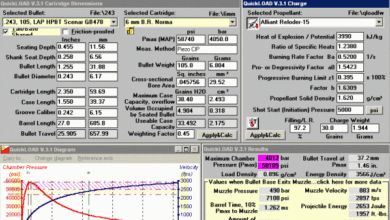betechit.com Tech News: Exploring the Future of Technology, Innovation, and Trends

Introduction: Why betechit.com Tech News Matters in the Digital Age
In a time when technology evolves faster than ever, keeping up with developments is crucial. From artificial intelligence breakthroughs and software innovations to blockchain revolutions and the rise of smart devices, betechit.com tech news has emerged as a trusted platform offering cutting-edge coverage. Tech enthusiasts, professionals, and everyday users rely on its insights to stay ahead of the curve.
This article delves deep into what makes betechit.com tech a standout player in the tech content space, covering its most popular topics, audience relevance, unique features, and the future of tech journalism.
1. The Rise of betechit.com Tech News: Origins and Growth
Founded with a vision to deliver accessible, high-quality, and real-time updates, betechit.com tech news began as a niche blog focused on tech gadgets and app reviews. However, with the digital boom post-2020, the platform expanded rapidly, diversifying into multiple categories including AI, cybersecurity, blockchain, and green tech.
Unlike conventional tech blogs that often target just professionals or developers, betechit.com tech creates content for everyone, from casual users wanting smartphone tips to enterprise-level readers interested in digital transformation strategies.
2. Core Coverage Areas of betechit.com Tech News
Let’s explore the categories where betechit.com tech provides consistently high-quality updates:
A. Artificial Intelligence & Machine Learning
AI is no longer a futuristic concept—it’s deeply integrated into our lives. Betechit.com tech news covers AI topics like:

-
The latest in generative AI tools
-
Chatbots and language models like GPT
-
AI ethics, transparency, and regulations
-
Industry applications in healthcare, fintech, and education
Readers can find updates on how companies are adopting AI and how it affects productivity, hiring, and innovation cycles.
B. Cybersecurity and Data Privacy
Cyber threats have increased exponentially, and betechit.com tech news keeps its readers aware of:
-
Zero-day exploits and malware outbreaks
-
Tips for securing personal data and networks
-
Government cyber policies and regulations
-
Trends in encryption, blockchain security, and ethical hacking
C. Consumer Electronics and Smart Devices
From smartphones and wearables to smart home ecosystems, betechit.com tech breaks down:
-
Product launches and reviews
-
Buying guides for tech gadgets
-
Comparisons between leading device brands
-
Integration of IoT (Internet of Things) in daily life
3. Trending Topics Frequently Discussed on betechit.com Tech News
Analyzing the most covered themes on the platform, the following consistently top the charts:
-
AI and Automation in Daily Life
Including chatbots, virtual assistants, and the changing workforce. -
5G and Connectivity
The transition to 5G networks impacts streaming, remote work, and IoT. -
Sustainable Tech
Eco-friendly innovation in manufacturing, packaging, and energy consumption. -
Blockchain Beyond Crypto
Blockchain use in supply chains, voting systems, and digital ID management. -
Tech Policy & Global Regulation
Coverage of how governments across the world regulate tech giants, data privacy, and AI control.
4. What Makes betechit.com Tech News Unique?
A few distinct elements make betechit.com tech more than just another tech blog:
A. Reader-Friendly Format
Each article is structured with clarity, using simple language for complex topics. This makes it ideal for both tech professionals and newcomers to digital trends.
B. Real-Time Updates
Whether it’s a Google Pixel launch or breaking news about a data leak, betechit.com tech publishes timely and reliable content, ensuring its readers are always in the know.
C. Expert Contributions
Tech journalists, ethical hackers, developers, and startup founders contribute articles and opinion pieces, adding layers of depth and credibility to the coverage.
D. Interactive Media & Visuals
Infographics, product galleries, video breakdowns, and charts complement the written content, improving comprehension and engagement.
5. betechit.com Tech News and the Rise of Tech Influencers
The platform frequently features or partners with rising tech influencers, content creators, and YouTubers. These personalities contribute reviews, predictions, and reaction videos, bridging the gap between tech content and digital entertainment.
For young readers and Gen Z, this integration creates a highly relatable experience where tech news feels more interactive and conversational.
6. Community Engagement and User Contributions
Betechit.com tech news isn’t just a content hub—it’s a community.
-
Comment Sections allow in-depth discussions and debates on tech ethics, device reviews, and AI opinions.
-
Guest Posts from startup owners, indie developers, and gadget reviewers help diversify perspectives.
-
Polls and Surveys on trending topics encourage audience participation and help shape future content.
7. betechit.com Tech News and SEO: A Masterclass in Digital Content Strategy
With high SERP visibility, optimized headlines, and keyword-balanced content, betechit.com tech news serves as a great example of SEO-friendly journalism. Their strategies include:
-
Using long-tail keywords (e.g., “best budget smartwatches 2025”)
-
Frequent content updates to retain freshness
-
Structured metadata and fast page speed
-
Mobile optimization for a seamless reading experience
This is one reason why the platform consistently ranks on Google’s front page for terms related to gadgets, AI news, and tech policy.
8. betechit.com Tech News for Students and Professionals
For students, the platform offers:
-
Career guides in tech fields
-
Reviews on student-friendly gadgets
-
Insights into academic research and innovation
For professionals, betechit.com tech covers:
-
Enterprise software reviews
-
Cyber compliance trends
-
Remote work tools and productivity apps
9. Future-Proofing Through Tech Forecasts
The platform frequently publishes tech predictions for the years ahead. Popular examples include:

-
“What Tech Will Look Like in 2030”
-
“AI and the Future of Human Creativity”
-
“Digital Banking and Cryptocurrency in the Next Decade”
This future-oriented content positions betechit.com tech news as not only informative but visionary.
10. Reviews and Ratings: Trusted and Transparent
From smartphones to apps, every review on betechit.com tech includes:
-
Hands-on testing results
-
Pros and cons
-
Comparisons with competitors
-
Value-for-money analysis
This approach helps users make well-informed purchasing decisions.
11. betechit.com Tech News in the Age of AI Journalism
As AI tools are now being used to generate content, betechit.com tech embraces a hybrid model—blending human editorial control with AI-assisted analytics and summarization. This balance ensures content remains relevant and accurate without losing the human touch.
12. Challenges Faced by betechit.com Tech News and How It Overcomes Them
Like all growing platforms, betechit.com tech deals with:
-
Misinformation threats: Solved through double-verification and expert reviews.
-
Algorithm dependence: Managed through diversified traffic sources like newsletters and direct app notifications.
-
Content overload: Mitigated by clean UI, category filters, and summary widgets.
13. Expansion Plans and What to Expect Next
Looking forward, the platform plans to:
-
Launch a dedicated mobile app
-
Introduce a members-only section for premium insights
-
Host live webinars and tech Q&A sessions
-
Expand into podcasting and video journalism
These features aim to make betechit.com tech more immersive and personalized.
Conclusion: The Role of betechit.com Tech News in Shaping Digital Literacy
In a rapidly changing tech world, knowledge is power, and platforms like betechit.com tech news play a pivotal role in delivering that knowledge. Whether you’re a startup founder, a tech geek, or just someone curious about the digital world, the platform offers an all-in-one solution.
From AI revolutions to product reviews, digital ethics to future forecasts, betechit.com tech doesn’t just report—it helps its readers adapt, prepare, and innovate.
Also Read: Exploring Career Opportunities in 2025: The Latest Jobs News by Newsarena.tech



